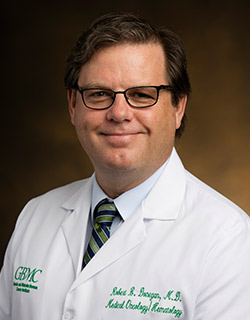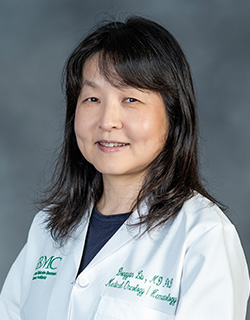Surviving and Thriving After Cancer - Q and A with Dr. Robert Donegan
May 3, 2017More than 15.5 million children and adults in U.S. are cancer survivors according to statistics gathered by the American Cancer Society. What is life like as a survivor? What steps can you take to speed your recovery from treatment and improve your health? How often should you see your doctor for follow-up care? Dr. Robert Donegan, a medical oncologist at GBMC’s Sandra & Malcolm Berman Cancer Institute, and Gina Crash, host of Today's 101.9 Mornings, talked about these issues and many more during a recent conversation that was shared on Facebook.
One question that several participants asked was what the definition of a cancer survivor is. Explained Dr. Donegan, “Technically, you are a cancer survivor from the moment you’re diagnosed, but the definition of survivorship means different things to different people. For some, you’re a survivor once you complete treatment. For others, it’s when you have your first scan that shows no signs of cancer. It’s a very personal thing.”
He also emphasized the importance of have a good working relationship with the doctors who are treating you. “When choosing an oncologist, it’s very important to feel trust in your doctor. You need to feel comfortable talking about whatever you need to talk about and asking any questions on your mind,” he said.
Other questions from viewers included how often you should see your doctor after you finish treatment, whether everyone who is diagnosed with cancer should undergo genetic counseling, and whether there’s a special cancer diet that can lower the risk of your cancer returning.
Dr. Donegan also shared some of the key strategies for living a fulfilling life as a survivor. “Fear of your cancer returning is normal and you should feel free to talk about it with your friends, family, and doctor. You can also get great insights on life as a survivor from members of a cancer support group. They’ve been where you are and felt the same emotions. One of the best ways to combat that fear is to ask your doctor what the actual risk of the cancer returning is. Many people overestimate their risk.” He also recommended taking the reins and empowering yourself by living a healthy lifestyle and being sure to see your oncologist and primary care physician for all needed follow-up care.





